Associative Property of Integers
Integers – Associative Property
Associative property of Addition
The associative property of addition states, that we can add group of numbers in any way but result will remain the same. The way of grouping of numbers doesn’t matter, the answer will be the same.
For any three integers, a, b and c, associative property of integers is as follows.
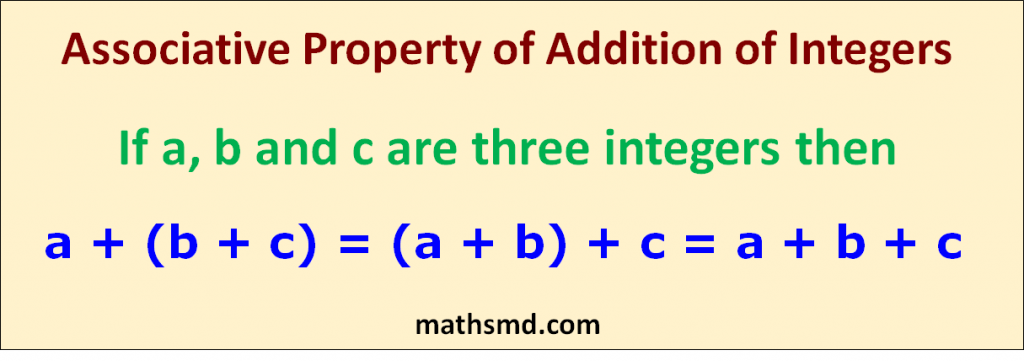
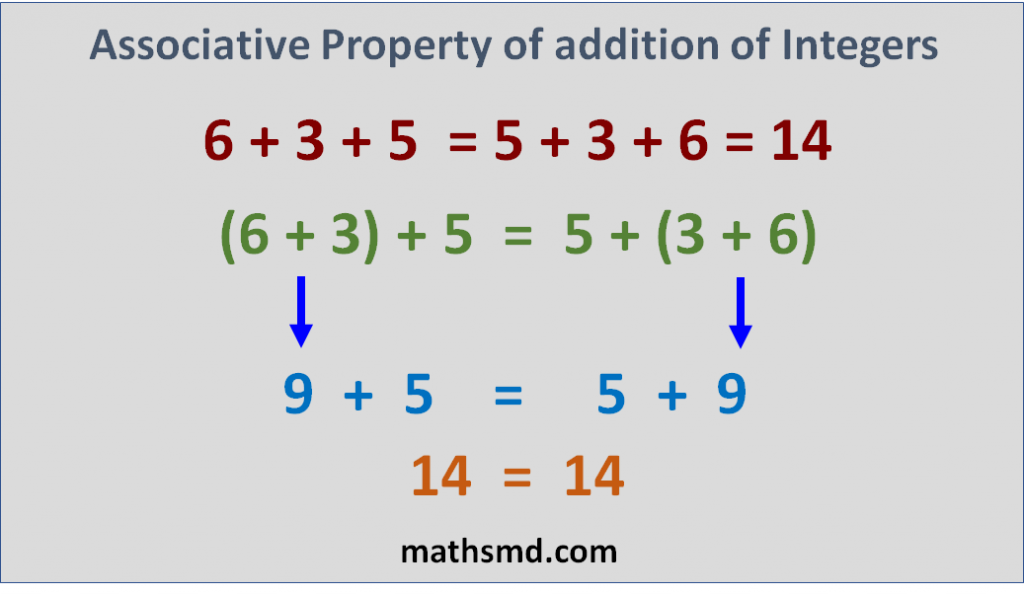
a +(b + c) = (a + b) + c = a + b + c
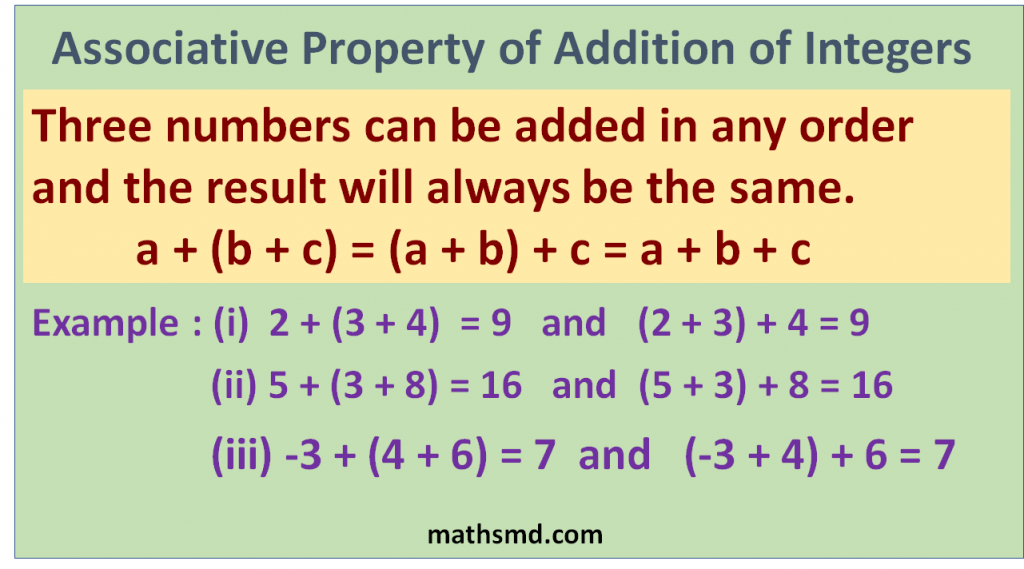
Example 1: Take any three integers 4, 5 and 3.
a + (b + c) = (a + b) + c
a + (b + c) = 4 +(5 + 3)
= 4 + 8
= 12 and
(a + b) + c = (4 + 5) + 3
= 9 + 3 = 12
Example 2: Take any three integers 3, -6 and 7.
a + (b + c) = 3 +[(-6) + 7] = 3 + 1
= 4 and
(a + b) + c = [3 + (-6)] + 7 = -3 +7
4 = 4 Both are equal therefore,
we can say addition is associative for integers.
Associative property of Subtraction
Take three integers a, b and c.
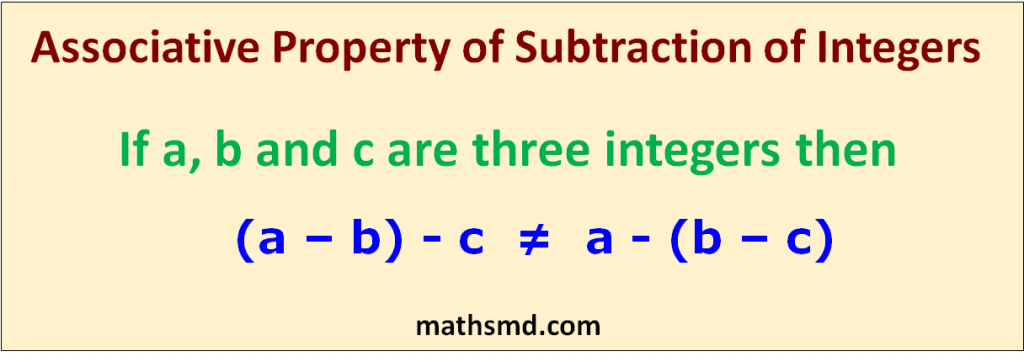
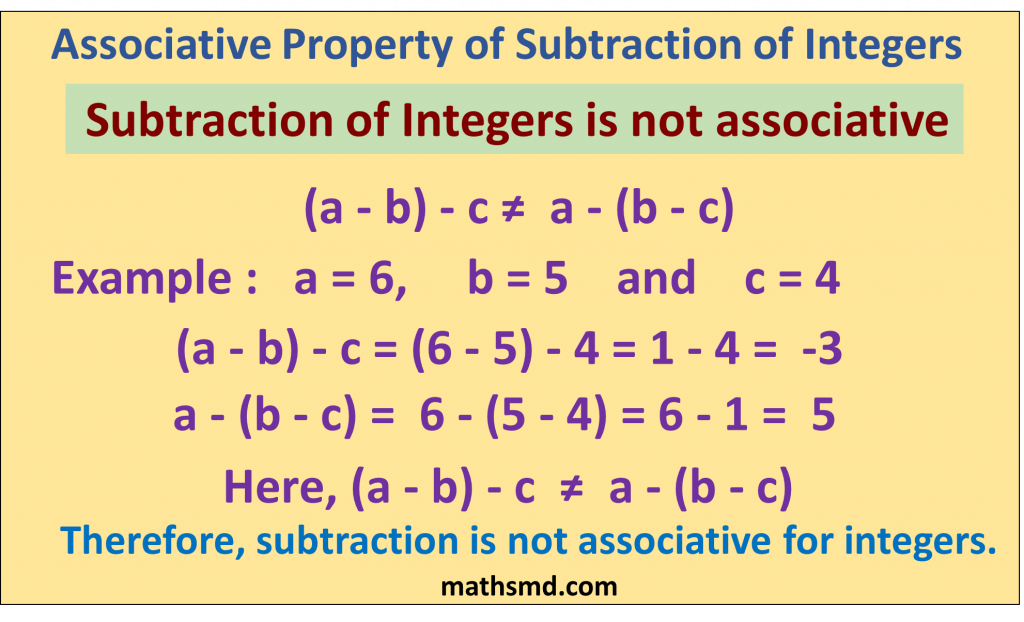
a – (b – c) ≠ (a – b) – c
Example: Take any three integers 5, 2 and 3.
a – (b – c) = 5 – (3 -2)
= 5 – 1
= 4 and
(a – b)- c = (5 – 3) – 2
= 2 – 2
= 0 Both are not equal. Therefore,
we can say subtraction is not associative for integers.
Associative property of Multiplication
The associative property of multiplication states that we can multiply numbers in groups but result will remain the same.
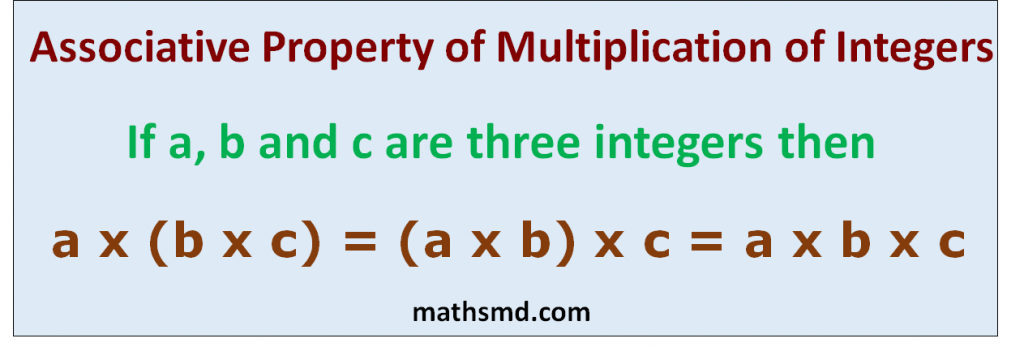
The style of grouping of numbers doesn’t matter, the answer will be the same.
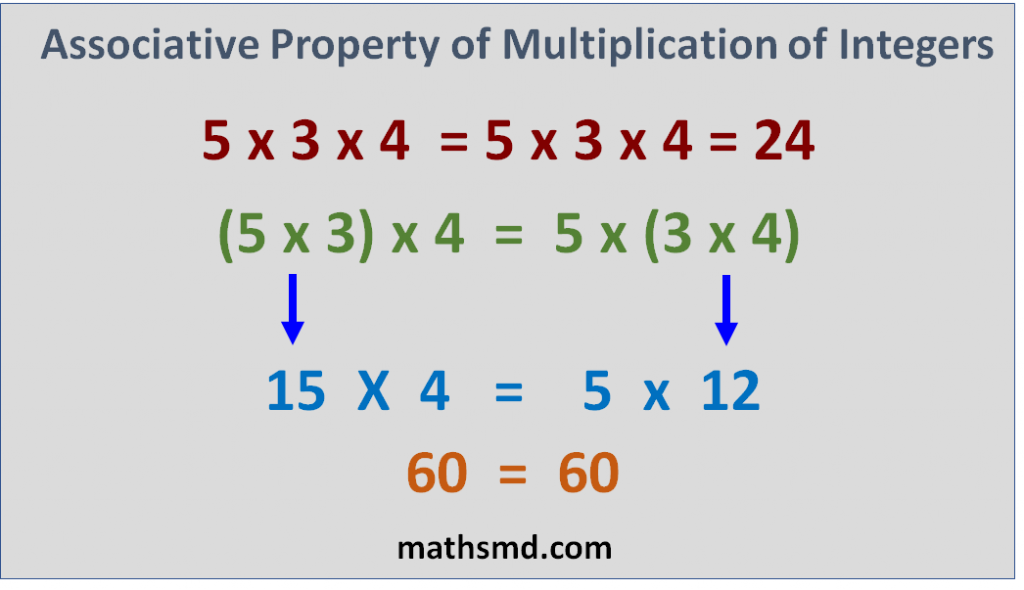
Take three integers a, b and c.
a x (b x c) = (a x b) x c = a x b x c
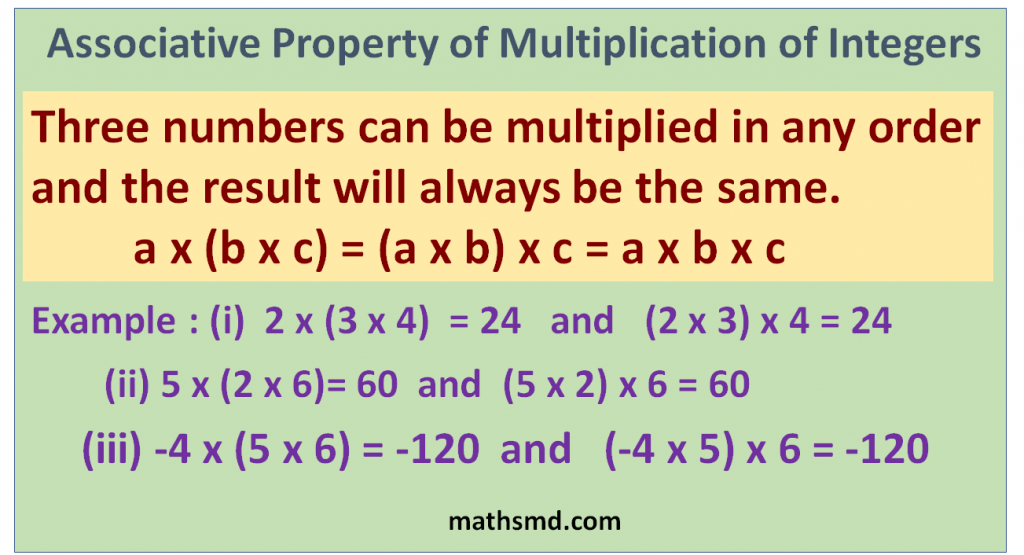
Example1: Take three integers 4, 5 and 3.
a x (b x c) = (a x b) x c
a x (b x c) = 4 x (5 x 3)
= 4 x 15
= 60 and
(a x b) x c = (4 x 5) x 3
= 20 x 3 = 60
Example 2: Take three integers 6, 5 and 7.
a x (b x c) = 6 x (5 x 7)
= 6 x 35
= 210 and
(a x b) x c = (6 x 5) x 7
= 210
210 = 210 Both are equal therefore,
we can say multiplication is associative for integers.
Associative property of Division
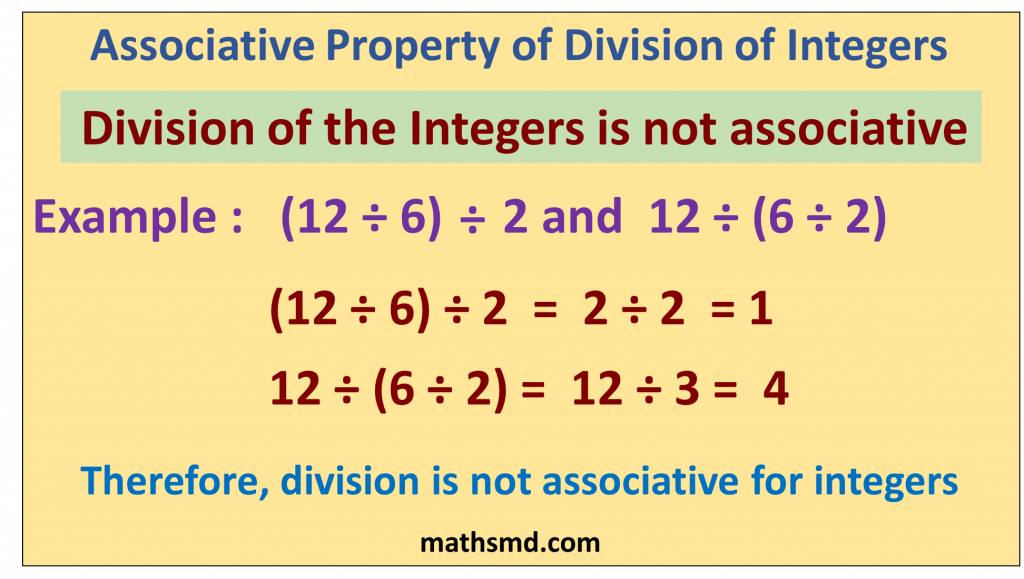
Observe the following examples:
16 ÷ (8 ÷ 2) = 16 ÷ 4 = 4
(16 ÷ 8) ÷ 2 = 2 ÷ 2 = 1
Therefore, 16 ÷ (8 ÷ 2) ≠ (16 ÷ 8) ÷ 2
From above examples
we can say that integers are not associative under division.